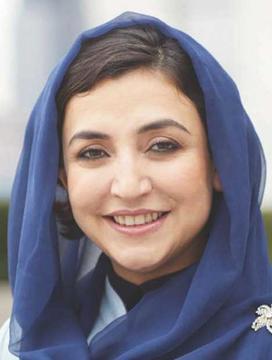In Short
The Board of Trustees APPROVED AN OPERATING BUDGET OF $2.66 BILLION for the 2022–23 academic year, including $217.4 million for undergraduate financial aid (a 6.6 percent increase), and a 12.7 percent increase in overall graduate financial support. The trustees also approved a 2.5 percent increase to tuition, room, and board, for a total fee package of $76,040.
Princeton reported that the average grant for students receiving aid is projected to increase by 4 percent to approximately $64,000 in the coming year, and that about 62 percent of all undergraduates currently receive aid. In January, the University announced a significant increase in its support for graduate students, raising fellowships and stipends by an average of 25 percent.

The School of Public and International Affairs (SPIA) and the Liechtenstein Institute on Self-Determination (LISD) are the founding co-sponsors of PRINCETON’S AFGHANISTAN POLICY LAB, a collaboration of fellows from Afghanistan and the University’s academic community that launched in April. Adela Raz, Afghanistan’s former ambassador to the United States and the United Nations, will lead the group, which plans to produce “policy-relevant research” focusing on four main areas: humanitarian aid, civic space, women, and national healing and reconciliation.
Princeton is PARTNERING WITH FIVE HISTORICALLY BLACK COLLEGES — Howard University, Jackson State University, Prairie View A&M University, Spelman College, and the University of Maryland Eastern Shore — and the United Negro College Fund to support faculty research collaborations. The Princeton Alliance for Collaborative Research and Innovation aims to fund multiple collaborative projects each year with each partnering institution, according to a May announcement. Teams of Princeton and HBCU researchers were invited to submit proposals by June 30.

Jordan Salama ’19’s Every Day the River Changes: Four Weeks Down the Magdalena, a nonfiction book that began as his senior thesis in the Spanish and Portuguese department, will be the PRINCETON PRE-READ FOR THE CLASS OF 2026. Salama’s book documents the time he spent in Colombia during the summer of 2018. In an introduction for the incoming freshmen, President Eisgruber ’83 wrote, “I hope that Jordan’s story will inspire you to think imaginatively and creatively about what you might do with your time at Princeton.”
In a confusing decision that seemed to satisfy no one, the Undergraduate Student Government (USG) CONFIRMED PASSAGE OF AN APRIL REFERENDUM calling for a University boycott of Caterpillar equipment because of its use by Israel to demolish Palestinian homes — but decided “not [to] make a statement on behalf of the student body in favor of or against the referendum.”
The referendum received 52 percent of the votes counted, according to the USG. However, after the vote, opponents of the referendum filed an appeal, claiming they were misled in discussions of how abstentions would be counted and that the misunderstanding affected their strategy. President Eisgruber ’83 said in an email to USG leaders that Princeton will not take any action and that “some issues are ill-suited to decision by referenda.”









No responses yet